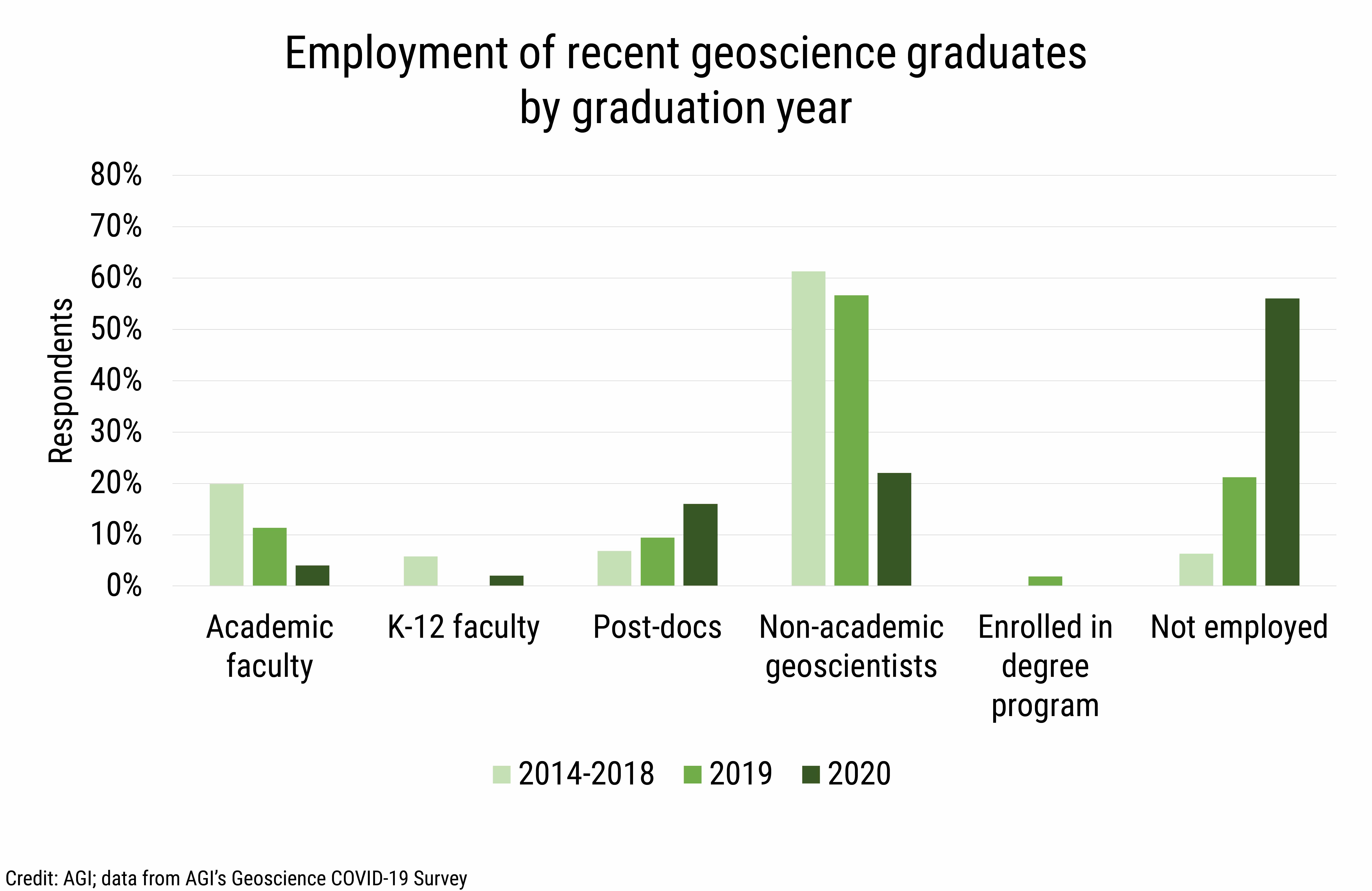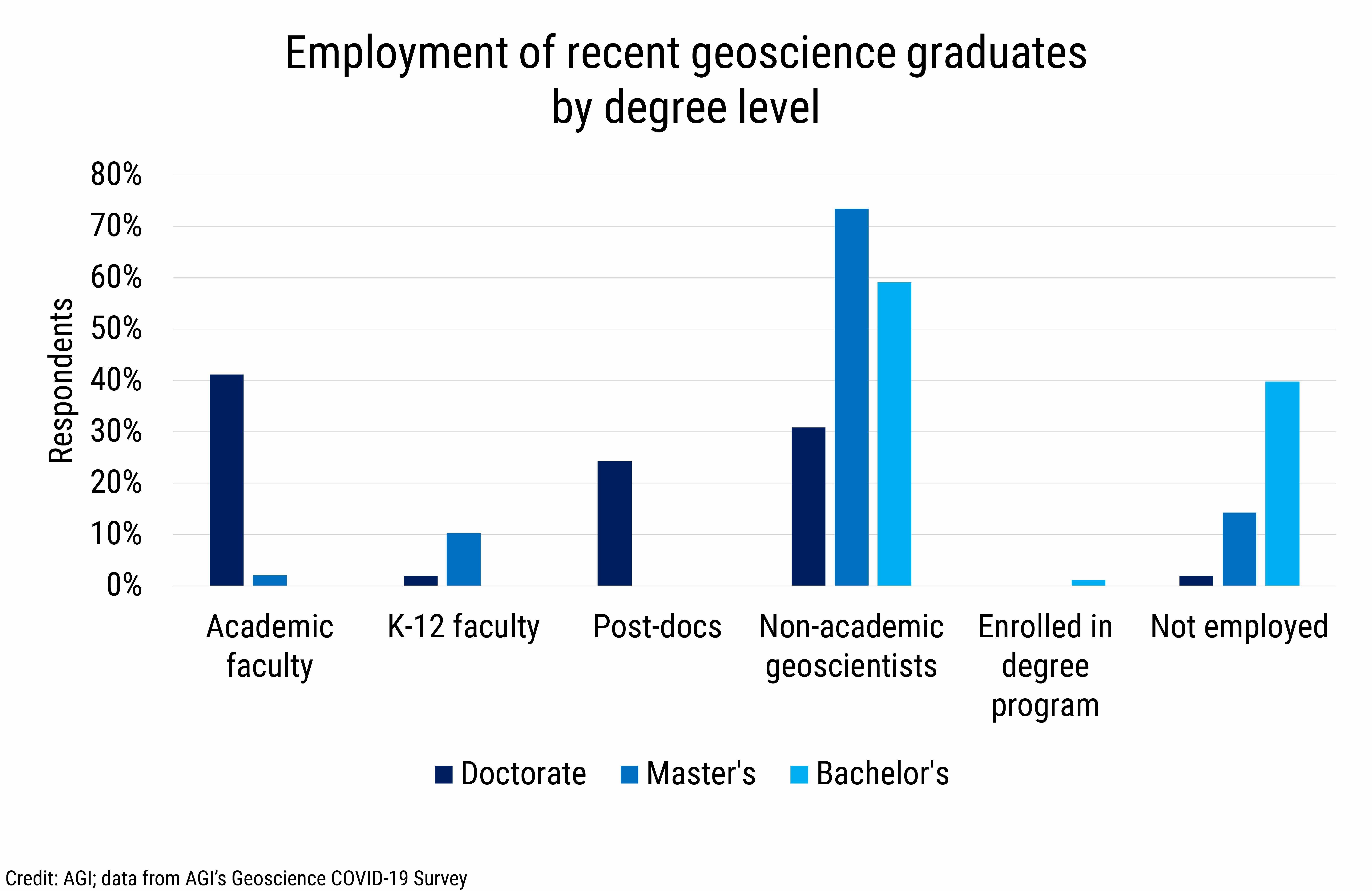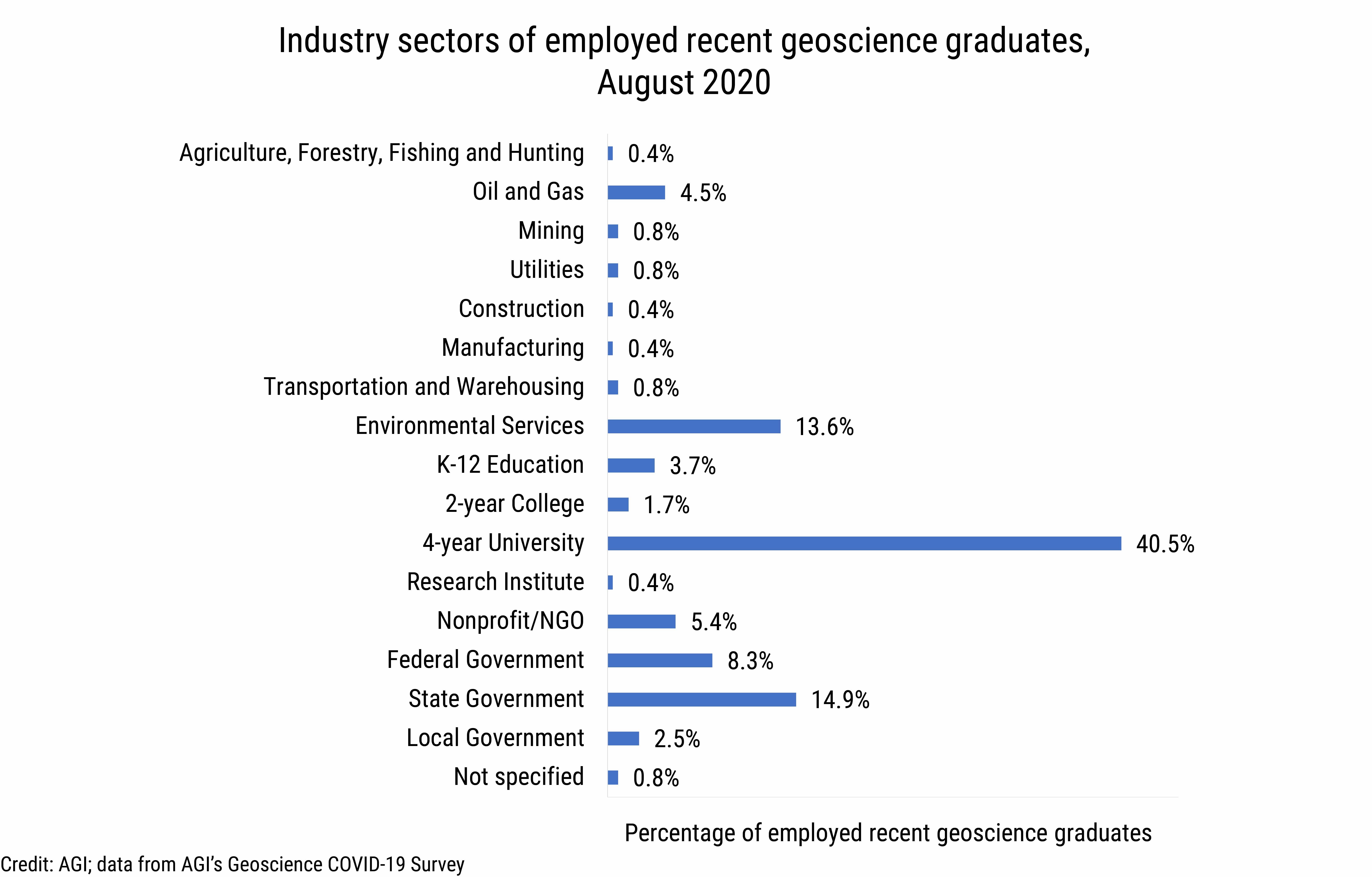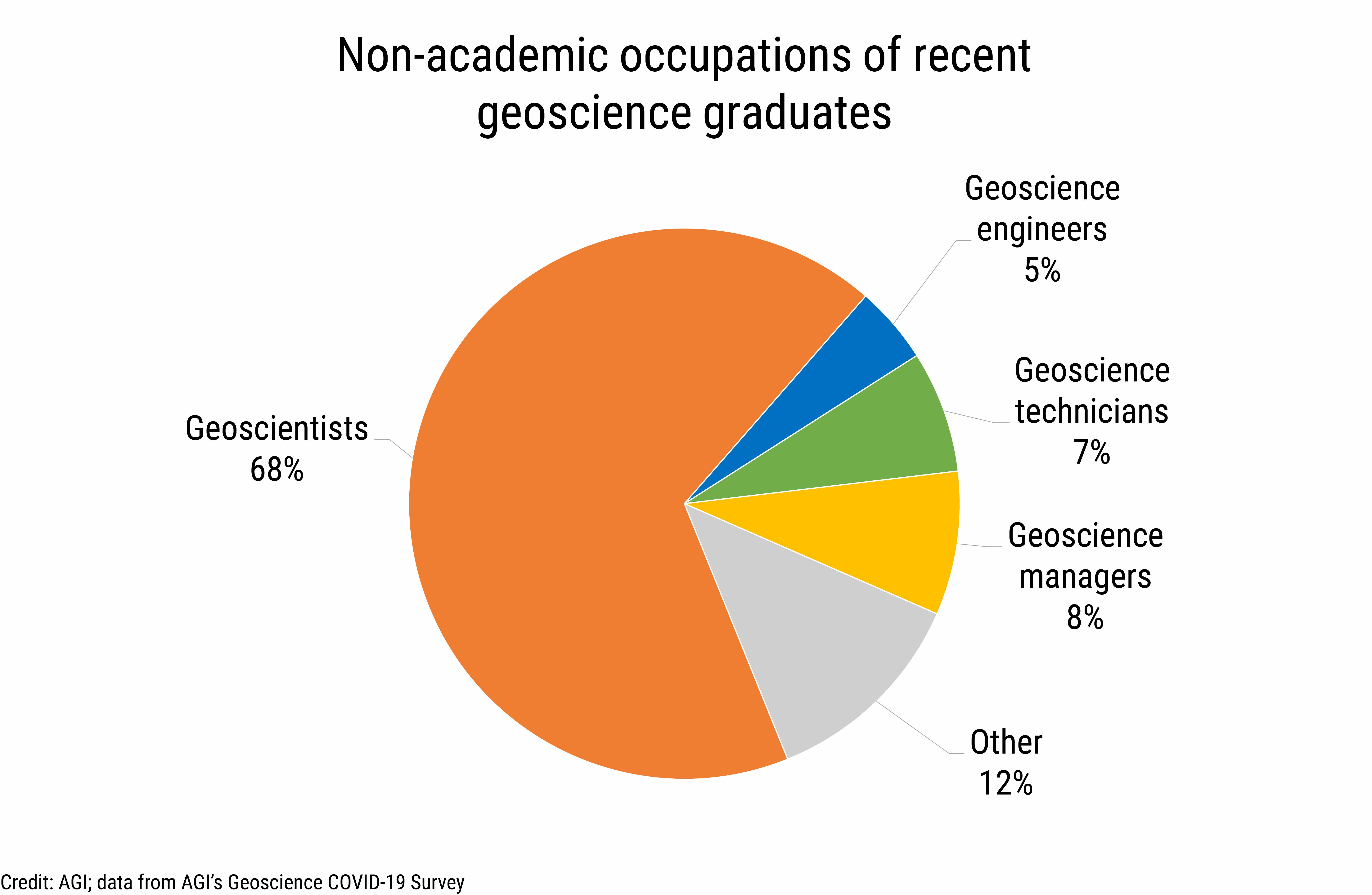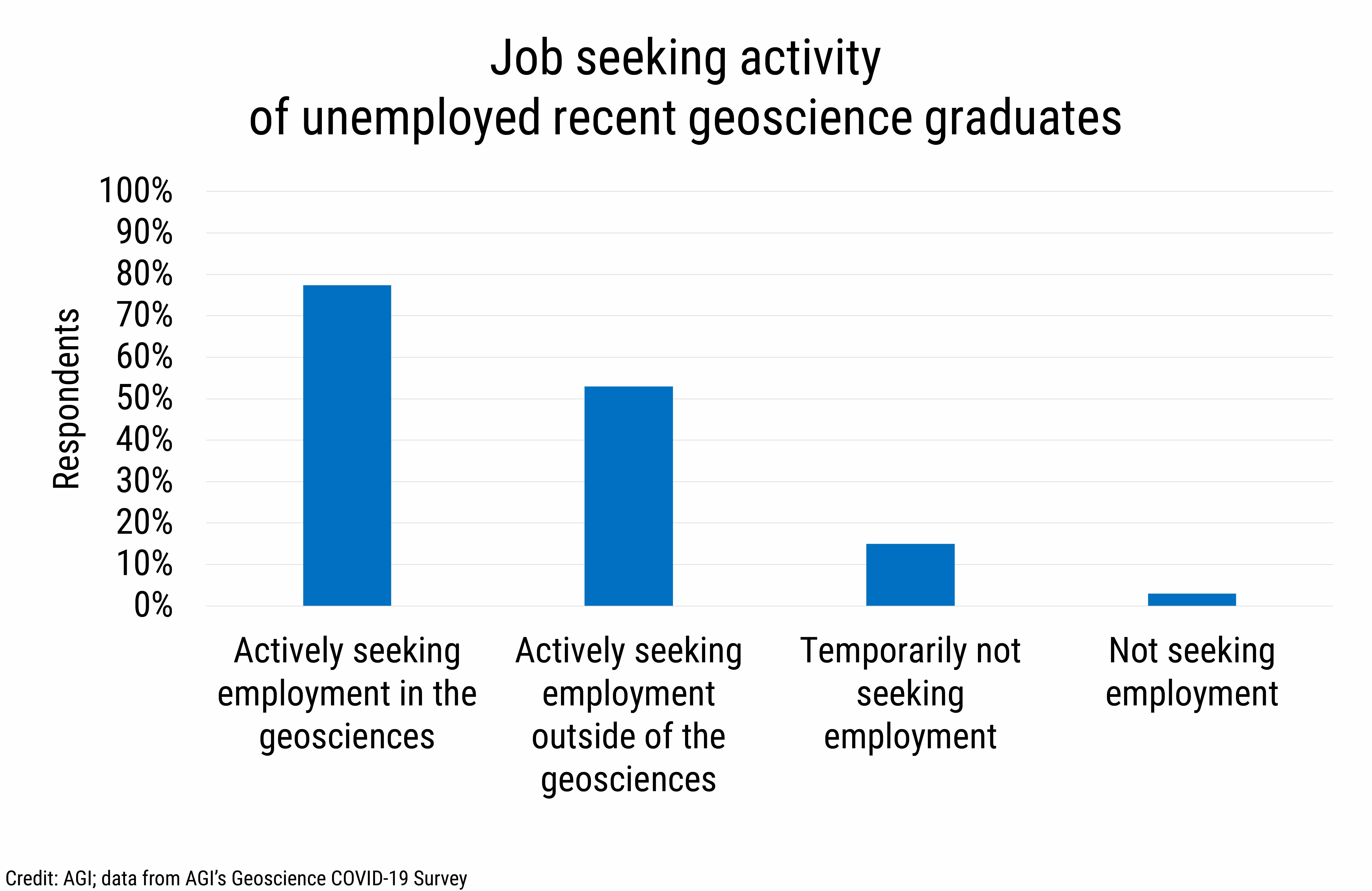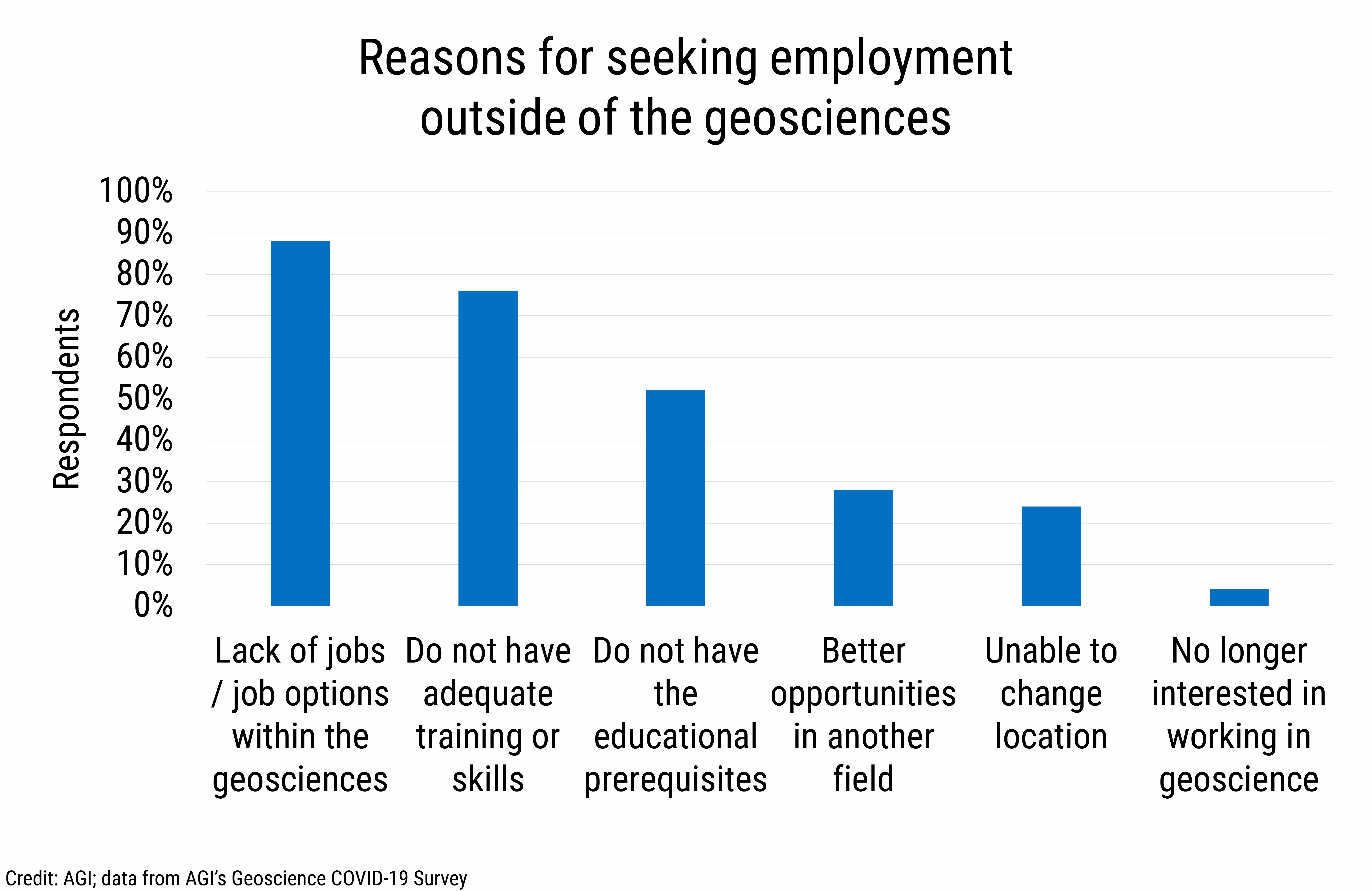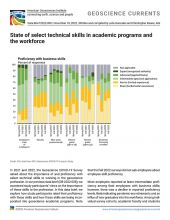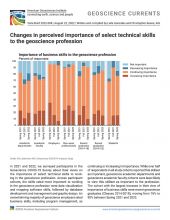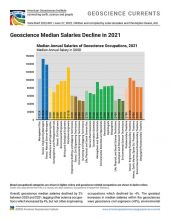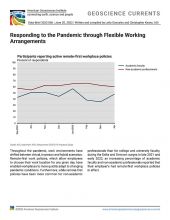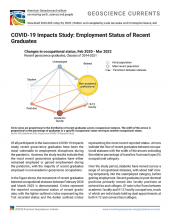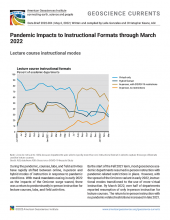As of August 2020, 94% of geoscience graduates who earned their degree between 2014-2018 were employed, while 77% of graduates from 2019 and 44% of graduates from 2020 reported the same. For geoscience graduates who earned their degree this year, 16% of bachelor's, 57% of master's, and 91% of doctorates have secured employment. For comparison, data from the 2013-2018 AGI Geoscience Exit Survey shows that 20% of geoscience graduates secured employment by the time they graduated. This data varied by degree level, with 12% of bachelor's, 36% of master's and 56% of doctorates securing employment by the time they graduated. The current Geoscience COVID-19 study data does not show deviation from long-term employment trends of recent geoscience graduates, and illustrates the general progression from graduation to job seeking to employment.
Recent geoscience doctorates were employed as academic faculty, post-doctoral fellows or non-academic geoscientists, and the majority of master’s and bachelor's graduates were employed as non-academic geoscientists. Only 1% of employed recent geoscience graduates lost their job since February 2020.
Recent geoscience graduates secured employment across a wide variety of sectors, with the highest percentages of graduates working in higher education (42%), government (26%), and environmental services (14%). Just over 5% of graduates secured employment in the non-profit sector and within the energy sector. Recent geoscience graduates who were employed in non-academic geoscience occupations were predominantly employed as geoscientists, geoscience managers, geoscience technicians, or geoscience engineers. Other non-academic occupations reported by geoscientists included computer software and support, industrial engineering, educational and library operations, policy analyst positions, administrative support, agriculture, and construction occupations.
Unemployed recent graduates
While 56% of geoscience graduates who earned their degree in 2020 reported being unemployed, only 21% of graduates who earned their degree in 2019 and 6% of graduates who earned their degree between 2014 and 2018 reported the same (see Figure 2). By degree level, a higher percentage of bachelor's graduates (40%) reported being unemployed than those with master's degrees (14%) or doctorates (2%).
Unemployed recent graduates are predominantly seeking employment in the geosciences (77%), and just over half are also seeking employment outside of the geosciences. The most common reasons for seeking employment outside of the geosciences included a lack of job opportunities within the geosciences and not having adequate training or skills for available geoscience jobs. Other reasons mentioned included not having the educational pre-requisites for available geoscience jobs, better opportunities in another field, an inability to change location to take a geoscience job, and a loss of interest in working within the geosciences.
We will continue to provide current snapshots on the impacts of COVID-19 on the geoscience enterprise throughout the year. For more information, and to participate in the study, please visit: www.americangeosciences.org/workforce/covid19
Funding for this project is provided by the National Science Foundation (Award #2029570). The results and interpretation of the survey are the views of the American Geosciences Institute and not those of the National Science Foundation.



